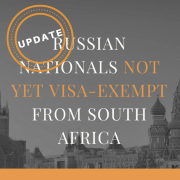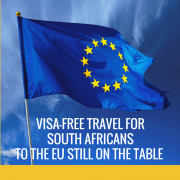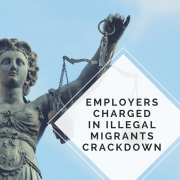Don’t get caught napping! Take advantage of the strong Rand
/in Archived, News /by Marisa JacobsSend money offshore using your investment allowances
One of the simplest ways to take advantage of a strong Rand is to send money abroad using your discretionary allowances.
All South African citizens over the age of 18 may send up to R11 million Rand offshore every calendar year. The first million you send doesn’t require tax clearance from SARS; this is called your discretionary allowance. The next R10 million can be sent using your annual investment allowance. If you wish to make use of this allowance you will need to obtain tax clearance from SARS.
Once your money is offshore, you can choose to put it in an interest-bearing account or invest it however you see fit in a country of your choosing. Remember to, as much as possible, seek locally-based investment advice in whichever country you’re planning to invest in.
Find out how to easily and effectively make use of your investment allowances.
Withdraw your South African retirement funds
Did you know that you can withdraw your South African-based retirement funds and annuities if you decide to leave South Africa? Depending on your type of retirement plan you may or may not choose to do this through financial emigration.
Whether you’re a South African currently living abroad, or if you’re thinking of emigrating permanently, a strong Rand means that you’ll be able to get more for your withdrawn retirement funds in your adopted home.
Once you’ve withdrawn your funds, you can send them anywhere in the world. What you then choose to do with your funds is entirely up to you. Reinvest them in a retirement product where you currently live, pay off your mortgage, pay for your children’s education, or spend them however you see fit.
Depending on your situation, and your intentions, financial emigration may be the perfect way for you to take your South African retirement funds offshore. The best thing about withdrawing your South African retirement funds is that you can ensure that your retirement savings are not at the mercy of the ever-volatile Rand.
Visit this page and send a request to speak to an expert and find out how best to offshore your South African retirement funds.
Buy property offshore and earn EU residency
For decades, property has been a favourite asset class for South Africans looking to make a solid investment. While yields from property are not always as high as equities or other riskier investments, they are generally greater.
In the past, and over the last few years in particular, buying property offshore has been tough for South Africans. But how things have changed!
The Rand is currently enjoying levels against the Pound not seen for more than three years. Just over a year ago, it was plumbing the depths at 24.51 to the Pound. The currency has since strengthened to the low 16s against the Sterling. A similar improvement has been made against the Euro.
Throw the possibility of earning EU residency in countries like Portugal when you buy a property there into the mix, and things really start to get interesting.
Through a purchase of a property you not only invest in an offshore asset in a developed country, but you will also earn the right to live, work and travel in the EU for you and your family.
Find out how you can secure an offshore property and EU residency.
These are just three ways to take advantage of the Rand. There are many different ways to make offshore investments, if you’d like to find out more please contact marisa@xpatweb.com to be put in touch.
By Andrew Rissik, Director – Sable International (as published by BizNews.com)






